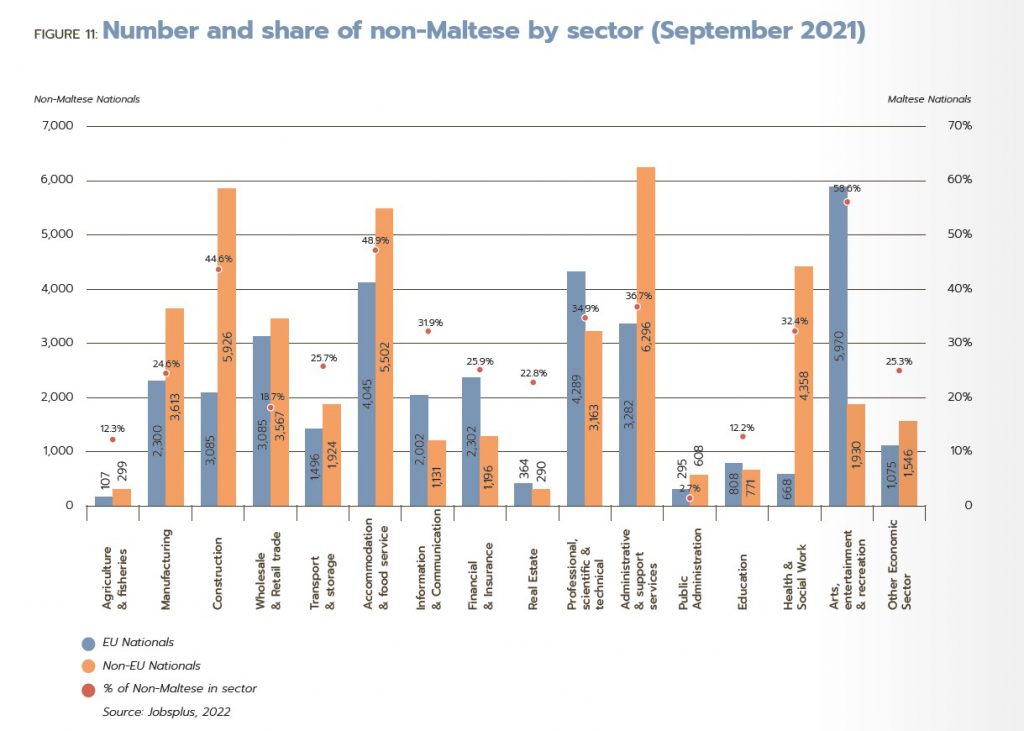Foreign workers in entertainment industry have outnumbered the Maltese

Employees in the arts, entertainment and the recreation industry are more likely to be foreigners as the number of Maltese workers plying their trade in this sector has declined to the point that they are now a minority. It transpires that foreign worker in these industries account to 58.6% which is roughly three in every five.
These statistics emerge from the 2021 Jobsplus annual report which gives an overview of the labour market and an insight into the growing demand for foreign workers.
While in 2017 foreign workers accounted to 19% out of the total registered workforce of 232,011, by September 2011 non-Maltese workers had increased to 27.9% or 76,258 out of 273,363 registered workers. This trend is reflected in the fact that during the period under review the Maltese cohort grew by a modest 2.1% annually, EU nationals by 3%, but the respective average growth for non-EU workers was a staggering 31.4%.
According to the Jobsplus data, non-EU workers are mostly found in administrative and support services (comprising clerical work and call centres) with 6,296 employees, followed by the construction industry with 5,926 workers while accommodation and food services is third with 5,502 workers.
As regards EU nationals, the largest share is in the arts and entertainment industry with 5,970 workers, followed by the professional, scientific and technical (4,289) and accommodation and food service 4,045. public administration having the least number of non-Maltese in its labour force at just 2.7 percent.

The annual report also provides interesting information regarding the nationality of foreign workers earning their livelihood in Malta. Unsurprisingly, the largest number of non-Maltese workers are from neighbouring Italy (10,038), followed by Britons (4,642), Bulgaria (2,265), Romania (2,160), Albania (2,037), Spain (1,542), France (1,529), Germany (1,459), Poland (1,387) and Hungary (1,338). Workers from the Philippines (6,031) lead the list of non-EU nationals in Malta, followed by India (5,817), Serbia (3,992), Nepal (2,481), and Turkey (1,497).
Though the strong economic growth registered in the last decade is quite often attributed to the emergence of foreign workers who filled gaps in the labour market, this has come at a cost. Concerns have been raised that the increasing reliance on third-country nationals especially Asians is proliferating cheap labour, precarious employment and at times abuse. While employers complained there are not enough workers for certain jobs, they faced criticism that they were intentionally relying on non-EU Workers to keep salaries low. In turn, this was negatively impacting on the rest of the workforce who feared being ‘price out’ of the labour market.
